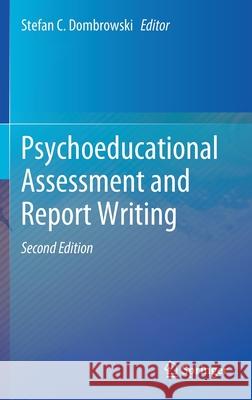Psychoeducational Assessment and Report Writing » książka
topmenu
Psychoeducational Assessment and Report Writing
ISBN-13: 9783030446406 / Angielski / Twarda / 2020 / 572 str.
Psychoeducational Assessment and Report Writing
ISBN-13: 9783030446406 / Angielski / Twarda / 2020 / 572 str.
cena 684,33
(netto: 651,74 VAT: 5%)
Najniższa cena z 30 dni: 616,85
(netto: 651,74 VAT: 5%)
Najniższa cena z 30 dni: 616,85
Termin realizacji zamówienia:
ok. 16-18 dni roboczych.
ok. 16-18 dni roboczych.
Darmowa dostawa!
Kategorie:
Kategorie BISAC:
Wydawca:
Springer
Język:
Angielski
ISBN-13:
9783030446406
Rok wydania:
2020
Wydanie:
2020
Ilość stron:
572
Waga:
0.99 kg
Wymiary:
23.39 x 15.6 x 3.17
Oprawa:
Twarda
Wolumenów:
01
Dodatkowe informacje:
Komentarz
Wydanie ilustrowane
Wydanie ilustrowane











